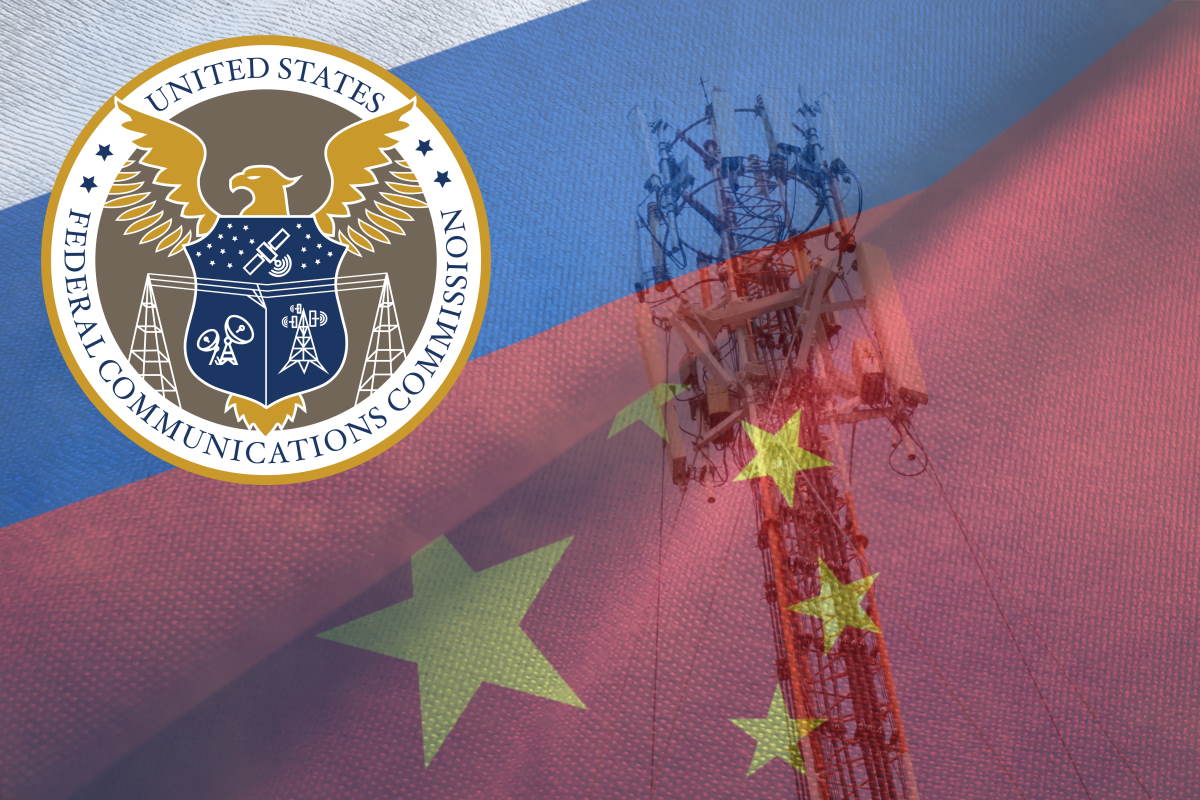FCC reveals that communications equipment, services from Kaspersky, China Telecom, China Mobile pose threat to national security

Russia’s AO Kaspersky Lab and two Chinese vendors China Telecom (Americas) and China Mobile International have been added by the Federal Communications Commission (FCC)’s Public Safety and Homeland Security Bureau to its list of communications equipment and services that pose a threat to national security. The ban is consistent with requirements in the Secure and Trusted Communications Networks Act of 2019.
“Last year, for the first time, the FCC published a list of communications equipment and services that pose an unacceptable risk to national security, and we have been working closely with our national security partners to review and update this list,” Jessica Rosenworcel, FCC chairwoman, said in a media statement, on Friday. The list has been updated to include the latest vendors.
“Today’s action is the latest in the FCC’s ongoing efforts, as part of the greater whole-of-government approach, to strengthen America’s communications networks against national security threats, including examining the foreign ownership of telecommunications companies providing service in the United States and revoking the authorization to operate where necessary. Our work in this area continues,” she added.
According to a Public Notice released by the FCC, its rules require the agency to place on the ‘Covered List’ any communications equipment or service if a source enumerated in the Secure Networks Act determines that the equipment or service poses an unacceptable risk to the national security of the U.S., and if the communications equipment or service is capable of posing an unacceptable risk to the national security of the nation.
Two of those enumerated sources are the Department of Homeland Security (DHS) and the Committee for the Assessment of Foreign Participation in the U.S. Telecommunications Services Sector, a group of government agencies that assists the FCC in its public interest review of national security and law enforcement concerns that may be raised by foreign participation in the nation’s telecommunications services sector, which was formerly known informally as ‘Team Telecom.’
The Bureau detected three determinations, one from the DHS and two from Team Telecom, which meet the statutory requirements for additions to the Covered List.
First, a Binding Operational Directive (BOD), issued by the DHS and published in the Federal Register in 2017, required certain federal agencies to remove ‘Kaspersky-branded products’ from federal information systems. “More specifically, the BOD is a compulsory direction to the federal, executive branch, departments, and agencies for the purposes of safeguarding information and information systems; federal agencies are required to comply with BODs,” the public notice said.
The BOD states that, in consultation with interagency partners, the DHS determined that the risks presented by ‘Kaspersky-branded products’ justify the issuance of this Binding Operational Directive. “Based on the required actions by federal agencies in response to the threats identified in the BOD, we interpret the BOD to be a finding from the Department of Homeland Security that Kaspersky-branded products pose an unacceptable risk to the national security of the United States,” it added.
Further, by requiring federal agencies to remove Kaspersky-branded products, “we find that the Department of Homeland Security has determined that its products are capable of posing an unacceptable risk to the national security of the United States and its people,” the notice added.
Team Telecom also found that China Telecom (Americas) services associated with its section 214 authorizations and China Telecom’s operations as a carrier in the U.S. pose substantial and unacceptable risks to U.S. national security and law enforcement concerns.
“Based on Team Telecom’s finding that China Telecom’s services associated with its section 214 authorizations pose substantial and unacceptable risks to U.S. national security, we find that Team Telecom also determined that those services are capable of otherwise posing an unacceptable risk to the national security of the United States and its people,” the notice added.
The FCC had in an order last October revoked and terminated on security grounds China Telecom (Americas)’s ability to provide domestic interstate and international telecommunications services within the U.S. The agency had based its revocation decision on the totality of the extensive unclassified record alone. Its public interest analysis finds that the present and future public interest, convenience, and necessity ‘are no longer served’ by China Telecom’s retention of its section 214 authority.
In addition, Team Telecom found that services associated with China Mobile International’s application for a certificate of public convenience and necessity under section 214 of the Communications Act raised ‘substantial and unacceptable national security and law enforcement risks in the current national security environment.’
“Based on Team Telecom’s finding that China Mobile’s services associated with its application for section 214 services posed substantial and unacceptable risks to U.S. national security, we find that Team Telecom also determined that the services that China Mobile’s application sought authority to provide are capable of otherwise posing an unacceptable risk to the national security of the United States and its people,” the notice said. “The inclusion of these services on the Covered List extends both to subsidiaries and affiliates of the named entities,” it added.
Earlier this month, the federal communications agency banned Chinese telecom firm Pacific Networks and its wholly-owned subsidiary, ComNet (USA) LLC, from providing domestic interstate and international telecommunications services within the U.S. In January, the agency had issued an order directing “China Unicom Americas to discontinue any domestic or international services that it provides pursuant to its section 214 authority within sixty days following the release of the Order.”
The U.S. Government Accountability Office (GAO) had in November last year directed the Cybersecurity and Infrastructure Security Agency (CISA) to assess the effectiveness of its actions to support the communications sector. CISA determined that the communications sector depends on other critical infrastructure sectors, including energy, information technology, and transportation systems, and any damage, disruption, or destruction to any one of these sectors could severely impact the operations of the communications sector.










